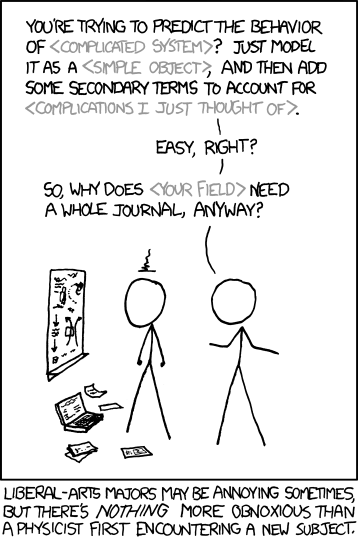A curious debate-by-blog has been spinning itself out, between some atheists who claim that modern genetic evidence conclusively rules out the Biblical story of Adam and Eve and the defenders of the faith. I'm all for atheists calling out the religious when their beliefs are contradicted by scientific evidence. It seems to me that this sort of debate didn't happen much during the last century: atheists pretty much ignored religious dogma and stuck to promoting knowledge of science (evolution, especially). So I was very interested in the current exchange. However, Jerry Coyne of
Why Evolution is True seems hell-bent on showing us how
not to go about it.
It began, more or less, with
Jerry's comments on some media reports about evangelical Christians who have been attempting to address the issue of the scientific evidence and its implications for Christian doctrines, especially the existence of an actual Adam and Eve. Jerry correctly points out that "... the scientific evidence shows that Adam and Eve could not have existed, at least in the way they’re portrayed in the Bible."
But then Coyne goes on to poke fun at the evangelicals' attempts to address the scientific evidence. Now, I don't choose to spend my time poking fun at other people's beliefs, but I don't have a problem with others who wish to do so - I enjoy my
daily dose of PZ as much as the next atheist. But I live in a country in which close to half of the citizens reject evolution. I think the message shouldn't be "Gee, look at those silly Christians struggling to fit their religious beliefs around scientific evidence." Instead, it should be "Hooray! You've finally admitted that Adam and Eve are mythical! Now go tell all your coreligionists, please."
From there things went downhill.
Michael Flynn responded to Jerry by noting that Roman Catholic theology, at least, doesn't require belief in a literal interpretation of "the mythos of Adam and Eve." He suggests a scenario in which Adam was just
one of many ancestors of modern humans - one who also happened to be a
common ancestor of everyone living today. In the National Catholic Register,
Mark Shea applauded Flynn, and
Edward Feser on his blog took the same tack.
Coyne fired back. His response is a good illustration of how an intelligent person can make fundamental mistakes when he goes outside of his area of expertise. A glance at any recent introduction to the Bible would have shown him that modern Biblical scholars recognize that the Bible is composed of a diversity of sources and is written in a variety of genres: history, poetry, myth, etc. For many, the Genesis story is a myth of origins, not a historical account. It should have been obvious, at any rate, that anyone who accepts the evolutionary account of human origins -
as Roman Catholics now do - cannot also take the Genesis account literally.
Instead of congratulating them for recognizing the validity of evolutionary science, Coyne goes on the offensive, saying they are misinterpreting their Bible and "
making stuff up" in order to reconcile it with their beliefs.
And if the language is figurative (and there’s no indication that it is: Shea simply realizes that the story [is] wrong in light of modern science), how does he know the event is real?
So, Jerry, you're now an expert on Biblical language?
Here, he falls into a common atheist error: telling Christians how they
should interpret the Bible, and then telling them why that interpretation doesn't make any sense. You're never going to get anywhere that way!
Fundamentally, I agree with Jerry's point: these theologians are scrambling to reconcile their beliefs with the scientific evidence, and it doesn't make a pretty fit. But at least they're making the attempt - in contrast to so many believers who simply stick their heads in the sand, ignore all the science, and claim the Earth is 6000 years old. In fighting to keep real science in the schools, it is the latter, not the former, we need to worry about.
Finally, and unforgivably, Jerry fudges on the science. Flynn pointed out, correctly, that the question of a single couple that is ancestral to all modern humans is completely different than the question of
mitochondrial Eve or
Y-chromosome Adam. The most recent common ancestor of all currently living humans (
MRCA) lived astonishingly recently, according to current models: around 2000-5000 years ago. Flynn, et. al., are supposing a picture in which Biblical Adam and Eve are ancestors of the whole of current humanity, though not the
sole ancestors, so it is the MRCA that is relevant. Rather than admit that they are right about the biology, Jerry simply ignores all this.
(On the other hand, Flynn and Feser both talk a lot of garbage about the evolution of "sapience": I wish Jerry had spent his considerable resources ripping them a new one on that point.)
I like Jerry's blog, and I agree with him most of the time. But the thought of uninformed atheists expounding the true meaning of the Bible makes my skin crawl. Please stick to the biology, Jerry, and leave the Bible interpretation to those who know something about it.





